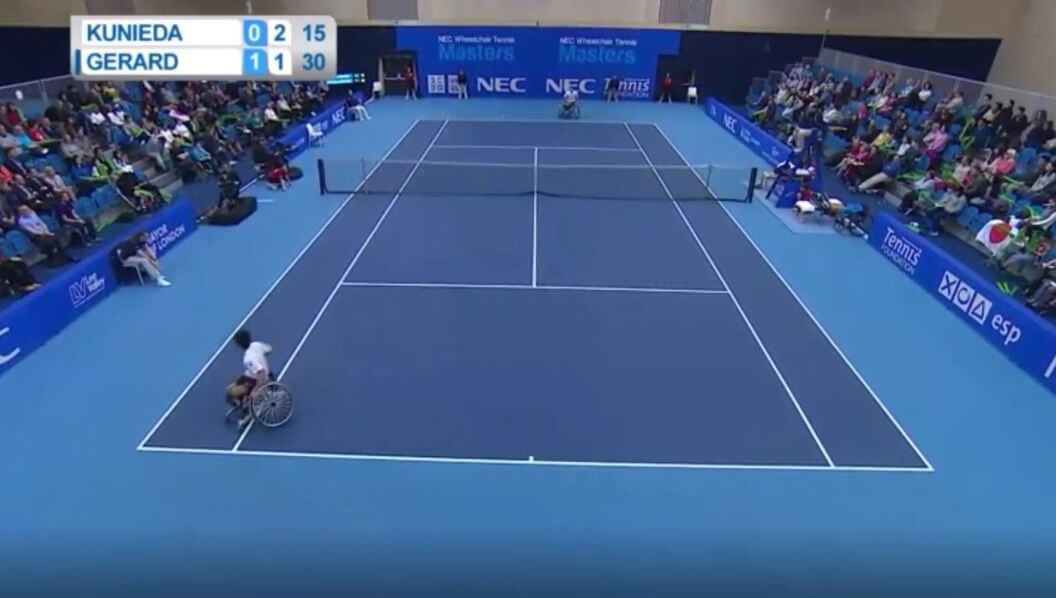KEY INFORMATION
Recommended age group: 11–14 (KS3)
Time required: one or two 45–60 min sessions depending on ability
Equipment: The Language of Tennis - Glossary activity sheet, sponge ball, tennis racket and writing materials.
Transcript of video
ACTIVITY IDEA
In this activity, students will collaborate to create a short, useful glossary for a person who is new to tennis. Students will be challenged to use very precise language, balancing technical terms with simple vocabulary so that their definitions can be understood by someone new to the sport. An added incentive can be injected into the activity by making it into a competition.
Pupils will be able to:
- increase their knowledge and understanding of vocabulary
- use their own words to explain technical terms and concepts.
TEACHER NOTES
- Students are given an imaginary scenario to introduce the challenge.
- The school is setting up a community tennis club so that people from the local area can make use of the school's courts.
- People playing for the first time will be given practical coaching but they will also need a short, simple glossary of tennis terms to help them understand the game.
- The task for students is to write a small part of this glossary. The class can work through an example together using a word such as 'umpire'. Ask for suggestions for a definition then invite improvements or alternatives to ensure the definition is simple and clear. Share a selection of existing definitions of 'umpire'. Which definition do students think is clearest and most accurate?
- Wikipedia: Person designated to enforce the rules of the game during play, usually sitting on a high chair beside the net.
- Oxford Dictionaries: An official who watches a game or match closely to enforce the rules and arbitrate on matters arising from the play.
- Sports definitions: The official who sits in a raised chair in line with the net and who is in overall charge of the match. (Some students may be aware that there are Chair Umpires and Line Umpires in tennis.)
- Some students will have more knowledge of tennis than others so it might be helpful to show the clip of a tennis match above, pausing so that students can look at the court (it also features a drop shot, one of the other suggested tennis words to define). Alternatively, students can be taken outside to the school courts to look at them. A keen tennis player might then use a racket and ball to show a drop shot and serve.
- Hand out the Language of Tennis - Glossary activity sheet and clarify what the task is. Students should not be allowed dictionaries or reference sources. Stress that definitions need to make sense to someone who is unfamiliar/new with the sport.
- Once the students have defined around half of the words, divide into groups (of 4–6) to peer review each other's first definitions. Each group will nominate their best definition and these will go to a class vote to find a winner (students have one vote per round but cannot vote for their own team).
- Discuss why the winners were thought to be the best. Did everyone agree? What does this tell students about what dictionary writers might have to consider? Gather ideas to create some class top tips for definitions.
- Using their learnings from the class vote, ask students to work independently to complete their definitions.
EXTENSION
This task involves students writing a 'Guide for Tennis Commentators'. This is a fun activity where students identify clichés and adjectives to avoid for TV and radio commentators working in tennis. For example:
|
Word/tennis term |
Adjective to avoid |
Better adjective |
|
serve |
huge |
|
|
atmosphere |
tense |
|
|
winner (winning shot) |
beautiful |
|
|
drop shot |
delicate |
|
|
defeat |
shock |
|
|
? |
? |
|
Students can add their own words and adjectives to those suggested above.
Older students could make an audiobook/video clip of themselves commentating to a clip of real tennis players or players from their school.
Make it active
-
Students can go onto a tennis court before their writing and act out some of the shots mentioned in the task.
-
In the extension activity, teachers can throw a sponge ball to a student to nominate who should come up with a 'better' adjective.

